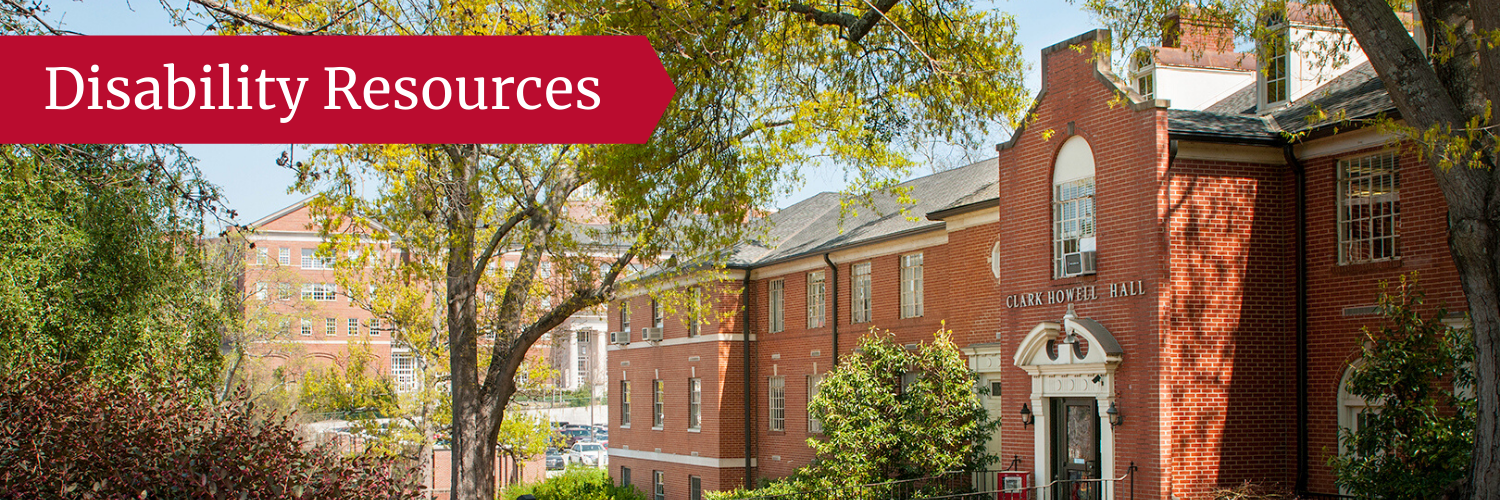Pre-Health Students with Disabilities

Students with a variety of disabilities including sensory, learning, physical and psychological apply to and get accepted into health professional programs. Students with disabilities make up approximately 3% of medical school students. Keep in mind this number may be higher as students may not disclose their disability.
Students with disabilities may want to review the technical standards of the schools to which they want to apply as prospective students must meet minimum technical standards that are essential to the program. Unfortunately, schools can be vague about these standards. You may want to look for contact information for prospective students with disabilities which will typically lead you to a designated person who is not affiliated with admissions decisions or the school’s disability resource center (often under different names). It may be helpful to consult your disability coordinator or the Disability Resource Center on campus in this process.
Testing Accommodations for Students with Disabilities
The following websites provide information on requesting accommodations for a number of entrance exams for each health professions program. Be sure to start the process for accommodations early, at least 60-90 days before you register for the exam, to ensure you have ample time to gather documentation to support your request. Documentation such as transcripts, previous evaluations and a current evaluation may be required or recommended. The documentation needs to demonstrate your disability substantially influences your ability to take the exam and accommodations requested directly relate to your disability. Remember, medical schools and other professional schools will not know if you received accommodations on exams and your test will not be flagged. Additionally, health care professionals are eligible for accommodations during training, on board exams and in the workplace, provided they meet certain criteria under the Americans with Disabilities Act (ADA).
For accommodations on interviews, look for contact information for prospective students with disabilities which will typically lead you to a designated person who is not affiliated with admissions decisions or the center that supports students with disabilities at the school.
MCAT Accommodations
CASPer Accommodations
DAT Accommodations
GRE Accommodations
Optometry Admissions Test (OAT) Accommodations
HESI Exam Accommodations
Students taking their test at a Prometric testing center will need to go through Evolve/Elsevier, Inc. to request testing accommodations. In contrast, students taking the test at their school's testing center will request accommodations through their school. Schools typically have an office for disability services to assist students with the process.
TEAS Accommodations
Many colleges host TEAS tests, and they follow their own guidelines for approving accommodations. The steps involved in this process can vary from college to college. Check with your prospective site to to arrange accommodations.
Resource Links
- Disability Resource Center professional staff work directly with students to assess their individual disability-related needs and to develop appropriate plans for academic accommodations and services.
Regents Center for Learning Disorders
- RCLD provides evaluation for students. It is important to note you will need to contact RCLD or another evaluator earlier rather than later as it may take a several months for a spot to open. Financial assistance is available, please contact the RCLD for more information.
Medical Students with Disabilities Facebook
- Exceptional Nurse is a resource for nursing students and nurses with disabilities.
The Society of Healthcare Professionals with Disabilities
- The mission of the Society is to foster an online supportive community and to freely provide disability-related resources and tools that are relevant for healthcare professionals, students, family members, and friends.
- Entry Point! identifies and recruits students with apparent and non-apparent disabilities studying in science, engineering, mathematics, computer science, and some fields of business for internship and co-op opportunities.
Misconception, misinformation, and myths: Premed students with disabilities
Docs with Disabilities Podcast
- Join hosts Drs. Lisa Meeks and Pete Poullos as they take a deeper dive into the expereinces of healthcare providers with disabilities through critical conversations with the doctors, reserachers, administrators, faculty and policy makers that work to ensure medicine remains an equal opportunity profession.
The Docs with Disabilities Initiative
-
The Docs with Disabilities Initiative uses research, education, and sharing of stories to drive change in perceptions, disability policy, and procedures in healthcare education.
The Stanford Medicine Abilities Coalition
Association of Medical Professionals with Hearing Losses
- Collaborative program focused on improving the inclusion of people with disabilities in healthcare research, education, practice, and community engagement.
